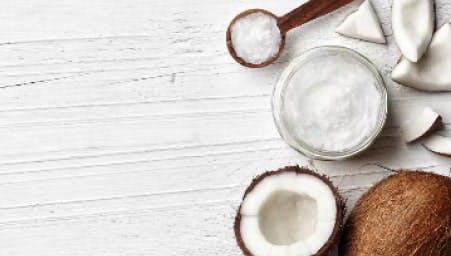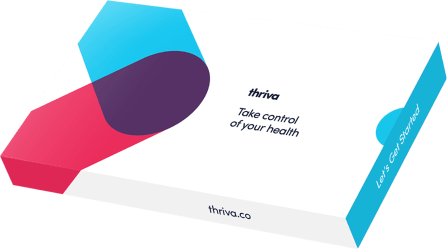A cholesterol test (lipid profile test) measures your cholesterol and triglyceride levels using a blood sample. High cholesterol or triglyceride levels can increase your risk of heart disease. There are no symptoms of high cholesterol, so it’s essential to check your levels every three months if they’re abnormally high. Find out more about checking your cholesterol and how to interpret your results.
What is cholesterol?
Cholesterol is a type of fat produced by your body. You need cholesterol to make hormones, vitamin D, and bile (which helps you digest food).
How to test your cholesterol levels yourself
You need to collect a blood sample to test your cholesterol levels yourself. The two main ways to do this are to do:
- a finger-prick blood test — collect a small blood sample using a lancet to prick your finger. Once you’ve sent your sample back to one of our labs, a GP reviews your results, and you can view them online within 48 hours. They also give you personalised tips for improving or maintaining your levels.
- a venous blood test — if you'd prefer not to collect your sample, you can visit a clinic at an extra cost where a trained professional inserts a needle into a vein (usually in your arm) to collect your blood sample.
Why should you measure your cholesterol?
While cholesterol is essential for your health, if it gets too high, it might increase your risk of heart disease — putting you at risk of a heart attack or stroke.
Several things can raise your cholesterol to an unhealthy level:
- eating foods high in saturated fats and trans fats
- eating too much sugary foods or simple carbohydrates
- not getting enough fibre
- lack of exercise
- smoking
- drinking too much alcohol
- a genetic condition called familial hypercholesterolaemia
There aren't usually any signs of high cholesterol until something goes wrong, like a heart attack. So it’s vital to measure your cholesterol levels regularly — aim for every 3 months if your levels are abnormal.
Regular cholesterol tests are particularly important if you:
- smoke
- are overweight or obese
- have genetically high cholesterol, or familial hypercholesterolaemia (FH)
- have a family history of heart disease or heart attacks
- have high blood pressure, heart disease, or diabetes
- are on medication for high cholesterol and need to track your levels
How to prepare for a cholesterol test
There are a couple of things you can do before a blood test, so the process is as smooth as possible:
- drink lots of water — being hydrated makes it easier to collect your blood sample and dehydration can affect some results
- keep warm — having a hot shower or jumping on the spot for a minute makes it easier to collect a finger-prick blood sample
You should fast (not eat) before doing a cholesterol blood test. This is because eating a meal close to taking your sample could raise your triglycerides for a short time.
Should you fast before a cholesterol test?
Ideally, you should fast before a cholesterol test. Fasting means not eating or drinking anything except water for up to 8-12 hours before your test. Doing your test in the morning can make this part of the process easier.
Fasting is important because a recent meal could affect your LDL cholesterol and triglyceride levels.
How is cholesterol measured?
Your cholesterol test (lipid profile) looks at the different types of fats in your blood. This includes your total cholesterol, HDL, LDL, and triglycerides. Your non-HDL cholesterol is your total cholesterol minus HDL cholesterol.
Advanced cholesterol tests
A more advanced way to look at your cholesterol is to look at your LDL particle size and number.
The normal lipid test looks at the total amount of LDL cholesterol in your blood. If this cholesterol is carried in small LDL particles, each particle carries less cholesterol so the total number of particles will be higher. This can mean you’re at an increased risk of heart disease.
If this cholesterol is carried in larger LDL particles, the total number of particles will be smaller — which isn’t thought to be as harmful.
Apolipoproteins are the main proteins found in the particles that carry cholesterol. Apolipoprotein B (apoB) is the main protein found in LDL cholesterol. Each LDL particle has one apoB, so it’s another way to measure how many LDL particles you have. Some tests will also check apolipoprotein A-1, the main protein found in HDL cholesterol.
Other blood tests that measure your LDL particle size aren’t common as they’re more complicated. But it’s possible to get an idea of your LDL particle size by dividing your triglyceride level by your HDL cholesterol level (TG/HDL-C ratio). A high TG/HDL-C ratio is associated with having more small LDL particles, which puts you at a greater risk of heart disease.
Another way to check your heart health is by measuring inflammation levels in your body with a high-sensitivity CRP (hs-CRP) test. High levels of inflammation are linked to a higher risk of heart disease.
How to interpret your cholesterol test results
Your cholesterol results will provide you with a range of figures. It’s important to look at each one and not just your total cholesterol. In the UK, cholesterol and triglyceride levels are measured in millimoles per litre (mmol/L) of blood.
The normal ranges are:
- LDL cholesterol — below 3.4 mmol/L
- HDL cholesterol — above 1.0 mmol/L
- triglycerides — below 1.7 mmol/L
- non-HDL (LDL plus other ‘bad’ cholesterols like IDL, vLDL) — below 4.0 mmol/L
- total cholesterol (HDL and non-HDL) — below 5.2 mmol/cholesterol ratio (total cholesterol/HDL) — below 4.0
When you use a cholesterol blood test, we also show you your optimal range — these results are linked to better health and longer life.
The normal ranges for apolipoproteins are:
- apolipoprotein B — below 1 g/L
- apolipoprotein A1 — above 1.2 g/L (for men) and above 1.4 g/L (for women)
- apolipoprotein ratio — below 0.7
What does high cholesterol mean?
If your cholesterol levels are raised to an unhealthy level, it’s called hyperlipidemia. There’s a lot of evidence from many large clinical trials showing a clear link between high cholesterol and:
- stroke
- heart attack
- angina (chest pain)
- high blood pressure
- chronic kidney disease
Heart attacks can still occur even in people with normal cholesterol levels. This is because heart disease is a complex condition, and cholesterol is only part of the picture. Your medical practitioner will also consider other factors when assessing your risk for heart disease. These include:
- your body mass index (BMI)
- age
- sex
- other medical conditions — like diabetes and high blood pressure
- family history
- whether you’re a smoker
Despite the influence of these other factors, keeping your cholesterol levels in the healthy range is still a good way to reduce your risk. This is because it’s an important predictor of heart disease.
How to manage your cholesterol
There are many things that you can do to lower your cholesterol. A healthy lifestyle is the most effective way to reduce or maintain normal cholesterol levels and benefits your overall health. But sometimes you might need to combine lifestyle changes with medication.
Follow a healthy and balanced diet
The Mediterranean diet is an excellent way to maintain healthy cholesterol levels.
A Mediterranean diet involves eating more:
- vegetable-based sauces — like tomato
- oily fish — like salmon, mackerel, and sardines
- lentils, beans, chickpeas, and soya
- high-fibre foods — like fruits and vegetables
- whole grains — especially oats
- unsalted nuts and seeds — especially almonds
- vegetable oils and spreads — like olive, sunflower, soya, and rapeseed oil
- omega-3 fats — found in oily fish, flax seeds, walnuts, or an omega-3 supplement
And you should try to eat less:
- ultra-processed foods — like crisps, breakfast cereals, and ready meals
- creamy or cheesy sauces
- processed meat products — like sausages, burgers, pate, salami, meat pies, and pasties
- full-fat milk, cheese, cream, and yoghurt
- lard, dripping, ghee, butter, and coconut oil
- soft drinks and sugary foods like ice creams and cakes
Certain foods contain a compound called phytosterols. These can also help reduce your cholesterol.
Commonly enriched foods include:
Aim for 2 grams daily as part of a healthy diet unless you’re pregnant or breastfeeding.
Stay active
You should take plenty of breaks (also known as movement snacks) if you spend lots of time sitting down during the day. This could be anything from gardening and cleaning to taking the stairs or going for a brisk walk.
Exercise regularly
Research shows that exercise can help lower LDL cholesterol and improve HDL cholesterol. This is especially important if you’re overweight or obese.
You should aim for 150 minutes (2.5 hours) of moderate-intensity weekly exercise — this type of activity raises your heart rate but doesn’t make you out of breath. Remember to start slowly and build up.
Some exercises you could try include:
- fast walking
- jogging
- swimming
- cycling
Always check with your doctor first before increasing exercise frequency and intensity.
Avoid drinking more than 14 units of alcohol a week
Drinking excessive amounts of alcohol can raise your cholesterol levels — increasing your risk of heart attacks and strokes. Adults in the UK shouldn’t consume more than 14 units a week.
Learn more about the effects of alcohol on your body.
Don’t smoke
Smoking can increase your cholesterol levels and your risk of serious health problems — like heart attacks, stroke, and cancer.
If you need help stopping smoking, you can contact your local stop-smoking service. See your GP to receive stop smoking treatments, like nicotine replacement.
Cholesterol-lowering medications
In some cases, your doctor might prescribe you medication to try to lower your cholesterol levels. The most commonly prescribed drugs are statins — these block your liver from producing cholesterol. Other medications can reduce the amount of cholesterol you absorb from foods.
Because medications can have side effects, trying to follow a healthy lifestyle first is usually preferable to lower your cholesterol. Your doctor will advise you on what’s the best treatment for you.
If medication is required, it’s still important not to rely solely on them to reduce your cholesterol levels. Continue with the recommended lifestyle changes to further reduce heart disease risk.


















